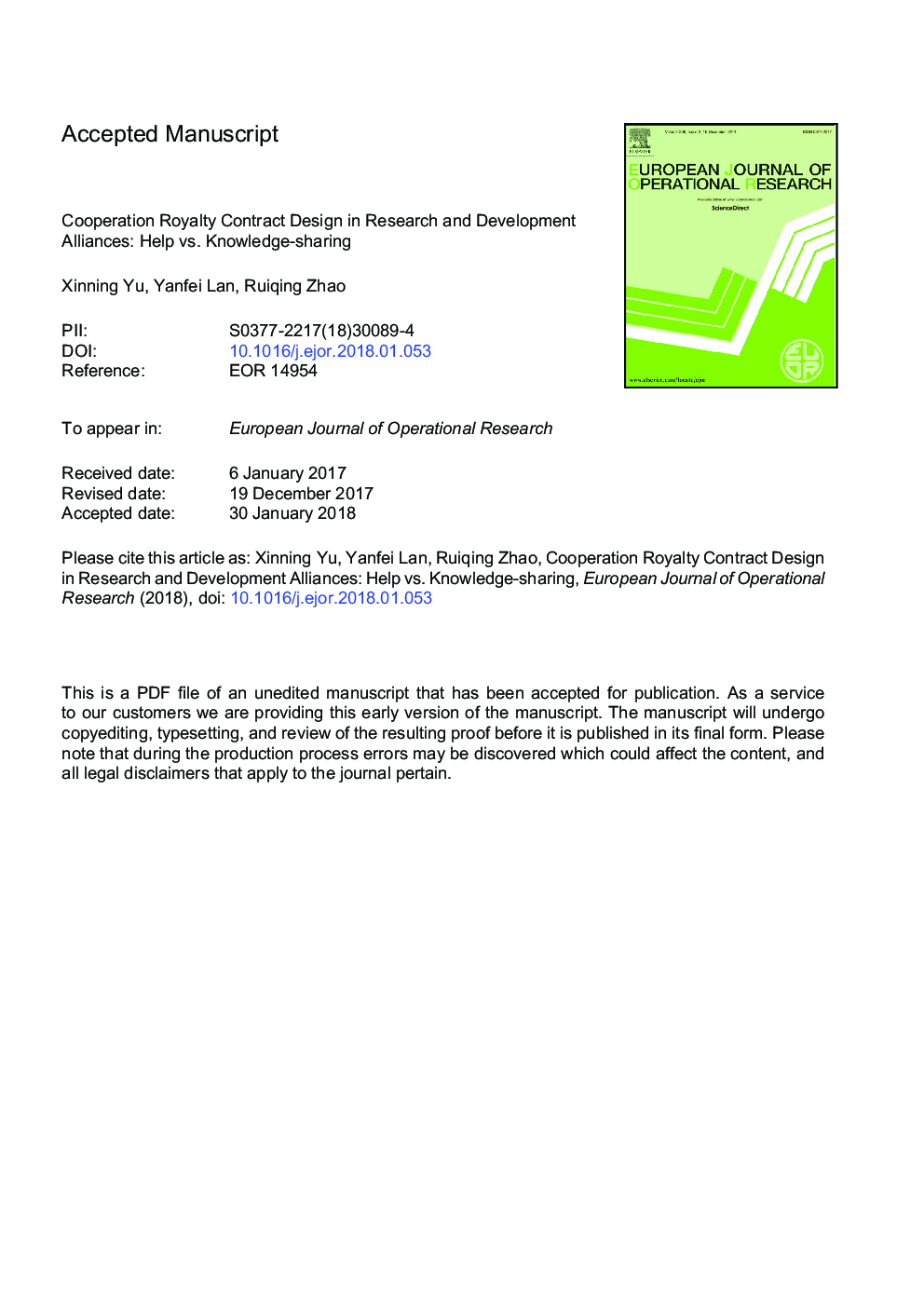| Article ID | Journal | Published Year | Pages | File Type |
|---|---|---|---|---|
| 6894854 | European Journal of Operational Research | 2018 | 37 Pages |
Abstract
We study a cooperation royalty contract design problem in a three-party research and development (R&D) alliance: A marketer offers royalty contract to hire innovator A to conduct the research stage of this process and innovator B to conduct the development stage of this process. Both innovators need to exert costly effort, which is unobservable to the marketer. Innovator A may (i) not be involved in the development stage (the non-cooperation contract); (ii) directly help innovator B by exerting effort during the development stage (the help contract); or (iii) share task-related knowledge with innovator B that would lower the latter's costs (the knowledge-sharing contract). To capture the inherent incentive alignment problems under moral hazard and evaluate the efficiency of cooperation, we compare the efficiency of the non-cooperation contract, the help contract and the knowledge-sharing contract and identify the conditions under which the marketer benefits most. We find that when the efficiency of knowledge-sharing is high, regardless of how efficient help is, the marketer prefers the knowledge-sharing contract. Interestingly, when the efficiency of help is low and the efficiency of knowledge-sharing is moderate, the marketer prefers the help contract. In addition, when the efficiencies of both types of cooperation are low, the non-cooperation contract would benefit the marketer most. Furthermore, for an R&D task with high technical risk, the best strategy for the marketer is to offer the knowledge-sharing contract.
Related Topics
Physical Sciences and Engineering
Computer Science
Computer Science (General)
Authors
Xinning Yu, Yanfei Lan, Ruiqing Zhao,
